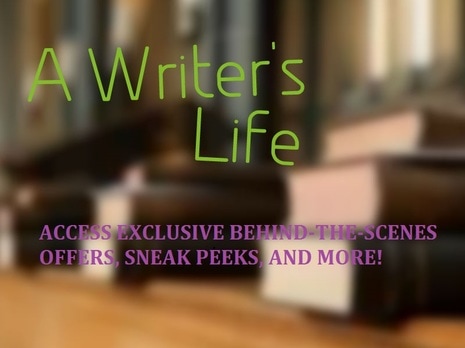
I used to think finding an agent and securing a traditional publishing deal was the pinnacle of writing success.
It would prove I was legit.
I’d finally be able to call myself a writer without feeling like a fraud.
Since my first book came out in 2009, however, my thinking has changed. I’ve signed sixteen traditional contracts, had an agent, said good-bye to that agent, used a vanity press twice, and self-published using both Createspace and Lightning Source. I've learned a few things.
I’m now a hybrid – a new breed of writer trying to use the best from both worlds.
There are still many pros to traditional publishing. Besides the assurance (most of the time) of a quality product, one’s books have access to the company’s distribution channels. There are none of the headaches of managing all the production and bookkeeping responsibilities. However, there are some serious downsides, too. Authors have minimal control over their own work. There can be restrictions on the cover, launch date, and promotions. Less of the profit goes to the author since he or she is also fueling the larger machine of the publishing company.
Don’t Make These Newbie Publishing Mistakes
I’ve had a few less than stellar experiences with books that were traditionally published. My first book deal was for my book, And The Beat Goes On. I later learned this particular publisher also charged for services (a vanity press), but in my case there was no charge of any kind. I worked with multiple editors, cover designers, and proofers. I didn’t know much about contracts, so I signed a seven-year deal for a 6% royalty on the cost price. The book originally came out in hardcover and sold for $30. Since my royalty was on the cost price, not the list price, I ended up making about $.87 per book. Even if you’re not a mathematician, you can see I would have to sell a lot of books to make any money! However, I was just thrilled to have signed a real book deal and I was naïve enough to think my books would suddenly start flying off the shelves.
I had a rude awakening when I realized I was still expected to do much of my own marketing. As well, my hands were tied when it came to giveaways, pricing, or sales. I also could not make any changes to the book for seven long years, since I no longer had the rights to my own work.
Here’s another story about my agent. I will not name him here, but he was a very nice man, and again, when he agreed to represent me I was thrilled, thinking I’d finally arrived. A few years after that first book deal he found me a contract for my book, Wind Over Marshdale, with a boutique publishing house. The deal was for a much more substantial royalty, but remember, he was entitled to a 15% cut of whatever royalties I made.
After hearing from readers who wanted a sequel, I decided to write a novella length story called Lone Wolf, which basically answered the question on everyone’s mind, “What happened to Thomas?” My agent felt that pitching a novella, even to the same publisher, wasn’t a smart move. I asked him if I could pitch it myself and he said, “Go ahead.” (In my case, my agent had first rights to any subsequent work I might produce.) I pitched it to the same publisher and they wanted the book, so I signed with them without my agent. That meant more royalties for me!
The story doesn’t end there, however. He had another of my manuscripts called, Three Strand Cord. He was busy pitching it to various large houses with no success. Again I suggested trying the same boutique publisher, but he didn’t feel the royalties or distribution channels would produce a high enough return to make it worthwhile. In the meantime, that manuscript was floating around from publisher to publisher for more than a year, totally out of my control. Finally, after much prayer and a few emails, we decided that it would be best if we parted ways. It was a very amicable parting and I have nothing against him. He did his best for me, but I was beginning to realize that the bureaucracy of the traditional system, with all its gates and red tape, was not something I was interested in pursuing anymore.
A Warning on Self-Publishing
One of the biggest issues with the modern era of self-publishing is the glut of poor quality books out there. I’m not, by any means, saying all self-published books are poor quality. On the contrary, modern author-preneurs are becoming savvy marketers. Part of that means realizing that substandard quality may be good enough for the first book, but it will not sell future books. It’s worth the investment to outsource such things as editing and cover design.
The Freedom of Hybrid Publishing
Authors no longer have to be bound by seven-year contracts or agents' wishes. We have the means to take control of our own writing careers and maybe even make some money at it.
While I’ve signed a fair number of traditional deals, I’ve also seen the wisdom in learning the ropes of self-publishing using Createspace and Lightning Source, two of the most well know DIY platforms.
I don’t plan to self-publish exclusively though. All of my stage-plays have been published traditionally in the US and I do quite well on the performance royalties. In this case, these publishers have a reach I could never hope to duplicate. It wouldn’t make sense to re-publish them myself, since I would stand to lose significantly.
Similarly, at this time, I am not planning to get the rights back for a couple of my other books. Clean Reads, (formerly Astraea Press), a small press who published both Wind Over Marshdale and Lone Wolf, treats their authors very well. I’ve made some wonderful connections, and have been involved in some amazing promotional opportunities with them. Why would I want to leave?
There is no one answer, just as there is no one way to get published.
The advantages of being a hybrid are many. And a growing number of high profile authors who are now also going the indie route. They’ve made a name for themselves via the traditional route, but now find they have more flexibility and control over their own work.
There’s nothing wrong with doing both; there is value and validity to each method. It is up to individual writers to choose what path makes most sense in any particular situation. Like never before, writers have truly become the authors of their own destiny.

Tracy Krauss is a multi-published and award-winning author of contemporary Christian romance with a twist of suspense and a touch of humor. It's fiction on the edge without crossing the line. Also an artist and playwright, she currently lives in beautiful BC, Canada. Visit her at TracyKrauss.com
Want a More Inspired Inbox?I'm glad to send you these insights, stories, writing helps and behind-the-scenes stuff we're working on. Click HERE for a more inspired inbox. |

